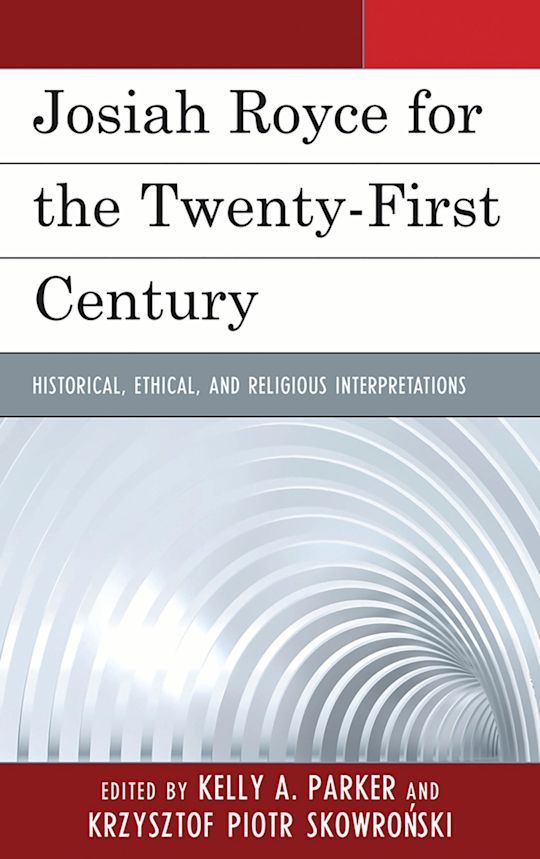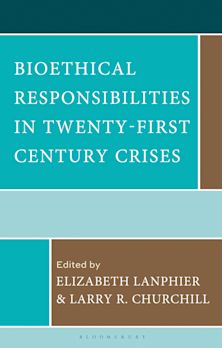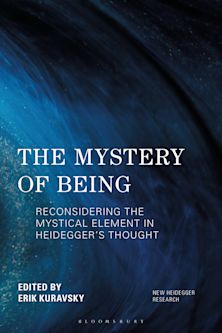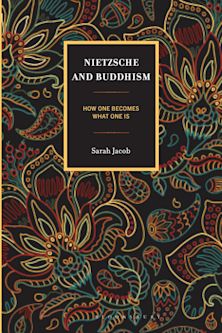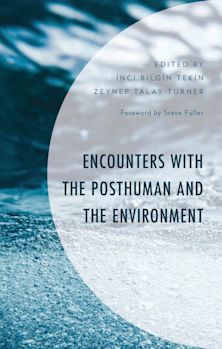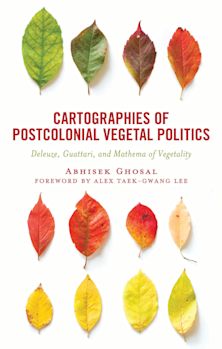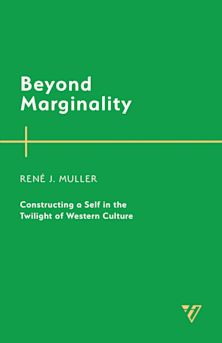- Home
- ACADEMIC
- Philosophy
- Philosophy - Other
- Josiah Royce for the Twenty-first Century
Josiah Royce for the Twenty-first Century
Historical, Ethical, and Religious Interpretations
Kelly Parker (Anthology Editor) , Krzysztof Skowronski (Anthology Editor) , Zbigniew Ambrozewicz (Contributor) , Marc M. Anderson (Contributor) , Randall Auxier (Contributor) , Thomas O. Buford (Contributor) , Gary L. Cesarz (Contributor) , Rossella Fabbrichesi (Contributor) , Matthew Caleb Flamm (Contributor) , Richard Hall (Contributor) , Jacquelyn Ann K. Kegley (Contributor) , Wojciech Malecki (Contributor) , Bette J. Manter (Contributor) , Ludwig Nagl (Contributor) , Ignas K. Skrupskelis (Contributor) , Claudio Marcelo Viale (Contributor)
Josiah Royce for the Twenty-first Century
Historical, Ethical, and Religious Interpretations
Kelly Parker (Anthology Editor) , Krzysztof Skowronski (Anthology Editor) , Zbigniew Ambrozewicz (Contributor) , Marc M. Anderson (Contributor) , Randall Auxier (Contributor) , Thomas O. Buford (Contributor) , Gary L. Cesarz (Contributor) , Rossella Fabbrichesi (Contributor) , Matthew Caleb Flamm (Contributor) , Richard Hall (Contributor) , Jacquelyn Ann K. Kegley (Contributor) , Wojciech Malecki (Contributor) , Bette J. Manter (Contributor) , Ludwig Nagl (Contributor) , Ignas K. Skrupskelis (Contributor) , Claudio Marcelo Viale (Contributor)
You must sign in to add this item to your wishlist. Please sign in or create an account
Description
The sixteen chapters of Josiah Royce for the Twenty-first Century are papers from the Fourth Annual Conference on American and European Values / International Conference on Josiah Royce, held at the Institute of Philosophy, University of Opole, Poland in June 2008. The presentation of diverse perspectives, and the development of many distinctive, promising strands of inquiry from the spring of Royce’s work, establish that Royce offers significant resources for a number of areas of contemporary philosophy.
The book is organized into four parts: (I) Historical Reinterpretations, (II) Ethics: Interpretations of Loyalty, (III) Religious Philosophy, and (IV) Contemporary Implications. Section I considers Royce’s position in the history if ideas, with papers on his account of individuation, his expansion on a key idea from Kant, his use and contribution to mathematical and philosophical conceptions of the infinite and the absolute, and his adaptation of Peircean semiotics. Sections II and III consist of focused readings of Royce’s work regarding ethics and religious philosophy, respectively. Section IV is the most diverse in the topics covered, with papers that bring Royce into contemporary discussions of psychology, of the problem of reference, of Rortyan neo-pragmatism, and of literary aesthetics.
The purpose of the Opole conference was to elicit fresh perspectives on the work of Josiah Royce from an international group of contributors. This collection achieves that aim by presenting new approaches to relatively familiar writings, by drawing out promising implications of Roycean themes, and by making genuinely new applications of his ideas. Josiah Royce for the Twenty-first Century presents a rich interaction among a diverse mix of commentators, who retrieve and construct promising new insights from the work of one of America's greatest thinkers.
Table of Contents
Kelly Parker and Krzysztof Piotr Skowronski
Part I. Historical Reinterpretations
Chapter 1: Psychological, Phenomenological, and Metaphysical Individuality in Royce’s Philosophy
Randall E. Auxier
Chapter2: Some Kantian Extrapolations from Royce
Marc M. Anderson
Chapter 3: Riddles & Resolutions: Infinity, Community and the Absolute in Royce’s Later Philosophy
Gary L. Cesarz
Chapter 4: Man as Sign and Man as Self-Surrender: Peirce, Royce and an Attempted Trans-valuation of the Concept of Humanity
Rossella Fabbrichesi
Part II. Ethics: Interpretations of Loyalty
Chapter 5: “Loyalty”: Royce’s Post-Kantian, Pragmaticist Conception of Ethics
Ludwig Nagl
Chapter 6: The Incompleteness of Loyalty
Bette J. Manter
Chapter 7: Josiah Royce’s Loyalty in the Context of Values and Powers
Krzysztof Piotr Skowronski
Chapter 8: Training for Loyalty to a Lost Cause as a Method of Royce's Social Pedagogy
Zbigniew Ambrozewicz
Part III. Religious Philosophy
Chapter 9: Searching for Rhymes: Royce’s Idealistic Quest
Matthew Caleb Flamm
Chapter 10: Pragmatism as Idealist Monotheism: Royce, Rorty and the Pragmatist Philosophy of Religion
Claudio Marcelo Viale
Chapter 11: Royce and the Recovery of the Personal
Thomas O. Buford
Chapter 12: Atonement and Eidetic Extinction
Kelly A. Parker
Part IV. Contemporary Implications
Chapter 13: Mind as Personal and Social Narrative of an Embodied Self
Jacquelyn Ann K. Kegley
Chapter 14: The Fourth Conception of Being and the Problem of Reference
Ignas K. Skrupskelis
Chapter 15: On Being Loyal (to the Wrong Hegel): Rorty and Royce between Literary Culture and Redemptive Truth
Wojciech Malecki
Chapter 16: Towards a Roycean Poetics
Richard A. S. Hall
Product details
| Published | 22 Mar 2012 |
|---|---|
| Format | Ebook (Epub & Mobi) |
| Edition | 1st |
| Extent | 306 |
| ISBN | 9780739173374 |
| Imprint | Lexington Books |
| Publisher | Bloomsbury Publishing |
About the contributors
Reviews
-
Josiah Royce for the Twenty-First Century delivers what it promises: a collection of new essays that show the breadth and depth of Royce's philosophy and make a compelling case for its relevance to the present world. Essays by both prominent Royce scholars and a new generation of interpreters make this volume essential reading for students of Royce and the American philosophical tradition and for those who are seeking critical alternatives to the main trends in contemporary pragmatist, analytic, and Continental philosophies.
Scott L. Pratt, University of Oregon
-
The editors of this volume call it a rediscovery of Royce’s work—it is more than that. Here one finds a deployment of Royce’s ideas that will surprise any who work with the stereotypical notion that Royce was just an old-fashioned American Hegelian. The essays trace important but less well documented influences on Royce’s work: Leibniz, Kant (in both metaphysics and ethics), Lotze, Nietzsche, and Peirce. More importantly, they place Royce’s ideas in the contemporary setting dealing with issues such as communitarianism, neo-pragmatism, philosophy of mind, linguistic reference, developmental psychology, and philosophy of religion. In doing so, they put Royce into conversation with the likes of Rorty, Brandom, the Churchlands, Searle, Arendt, Margolis, Levinas, and a host of other thinkers. The book is important as a corrective to much that has been written about Royce by uninformed critics, and it is useful in detailing Royce’s ongoing relevance for philosophy in the twenty-first century.
Douglas Anderson, University of North Texas
-
The philosophical depth, thickness and significance of Royce’s writing are herein met head-on with these informed and trenchant essays. The authors set Royce smack-in-the-middle of major contemporary philosophical issues, such that the hanging on of shibboleths as to his being trapped in an out-of-date portfolio must now be abandoned. In this book, Royce is philosophically alive and worthy of sustained attention.
John J. McDermott, Distinguished Professor of Philosophy and Humanities, Texas A&M University
-
Kelly A. Parker’s and Krzysztof Piotr Skowronski’s Josiah Royce for the Twenty-first Century: Historical, Ethical, and Religious Interpretations is a monumental testament to the nascent international revival of Josiah Royce’s philosophy among contemporary philosophers, especially those who are historians of late nineteenth and early twentieth century North American idealism, historians of classical American pragmatism, or contemporary scholars working in pragmatism broadly defined. This collection brings together well-known Royce scholars and scholars who are encountering Royce’s thought for the first time. It is also a good primer on most of the major themes in contemporary Royce scholarship.
In addition, several of the contributors offer a much needed historical reinterpretation of Royce’s thought, particularly with respect to his metaphysics, his philosophy of art, and his pragmatism. Moreover, several of the contributors work to bring Royce’s thought into the twenty-first century by identifying the contributions it can make to contemporary epistemology, metaphysics, moral philosophy, philosophy of mind, and philosophy of religion. It also places Royce in conversation not only with the usual suspects – for example, William James, Charles Sanders Peirce, John Dewey, Immanuel Kant, Rudolf Hermann Lotze, Georg Wilhelm Friedrich Hegel, George Santayana, and George Herbert Mead – but also with thinkers not normally associated with Royce – for example, Richard Rorty and John Searle.Dwayne Tunstall, Grand Valley State University









